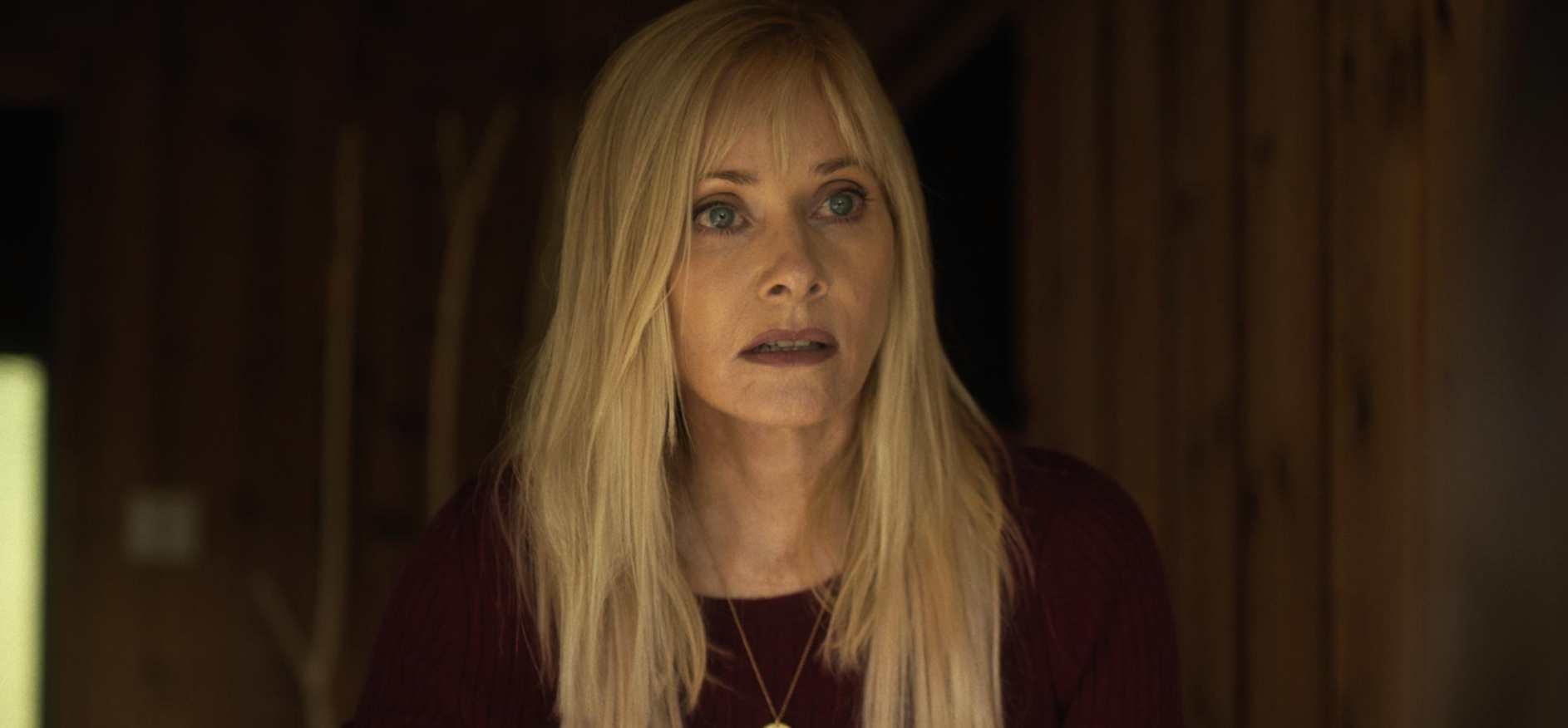What to Watch Verdict
'Sacrifice' tilts the scale towards "favorable" by keeping appearances and going down smooth, like a dependable libation when you want exactly what's being sold.
Pros
- +
⛰️ We respect a Barbara Crampton inclusion.
- +
⛰️ Cinematography is candy-coated imprisonment.
- +
⛰️ Norwegian lore meets Lovecraft's gaze.
Cons
- -
⛰️ Might be too streamlined for some.
- -
⛰️ The driving climax isn't full of surprises.
- -
⛰️ Characters are detestable with purpose, but may off-put viewers.
To dub Sacrifice “adequate” isn’t meant as a roast or snark. Andy Collier and Toor Mian serve an independent, colors-out-of-space Lovecraftian experience in under ninety minutes using a narrative that confidently lacks complexity. Succinct explorations into a husband-wife power struggle are a callback to Paul Kane’s source short story, given how Collier and Mian don’t seem to embellish conflict drama beyond rationed requirements. You can sense, quite curtly, how continuity might feel rapid in succession, but it's packaged with neon luminescence and technical polish to embolden another self-proclaimed homage to H.P. Lovecraft.
Twenty-five years after fleeing his remote Norwegian island homeland, Isaac (Ludovic Hughes) returns with his pregnant wife Emma (Sophie Stevens). Their mission? To sell Isaac’s inherited estate and leave the community behind. Then local sheriff Renate (Barbara Crampton) clues Isaac into his father’s grisly murder, which sparks an interest to rediscover buried roots. As Isaac experiences sacramental traditions and learns about the area's waterside protector, Cthulhu, Emma stresses her growing urgency over returning to America. Their divide turns to aggression, as Issac falls deeper and deeper into the intimate comforts of his kinda-culty, cloaks and all, “family.”
Also, you already know the title of Collier and Mian’s thriller.
From the moment Isaac docks ashore, soaking in the salty coastal air and towering mountain ranges, Sacrifice asserts its unease. Aurora Borealis flickers ignite the midnight sky in ways that’d make natural photojournalists wealthy, but local lagermeister Gunnar (Lukas Loughran) reminds that beauty might be masking chaos. He quips about how the refractory phenomenon is a reminder that the apocalypse will be Earth’s fiery demise because everything in Norway is shrouded in macabre Cthulhuism, eh? Also, Gunnar is the same barroom provocateur who first verbally accosts Isaac and Emma inside a chic gastropub for being outsiders until he recognizes Isaac’s hereditary bloodlines. The tone immediately shifts to celebratory, like a king has just retaken his throne.
Ludovic Hughes is a hateable protagonist with a punchable face (overheard-on-couch words) because Sacrifice requires firestarter conflict between Isaac and his childbearing partner. Again, there are few squandered seconds, referencing how Collier and Mian are most-obviously adapting a short into feature-length. Isaac’s callous disregard and outright maliciousness towards the woman he “adores” skip developmental steps in the essence of compactness, out of necessity. Isaac immediately starts begrudging his fair maiden’s basest requests, and Isaac becomes hypnotized by the bearded brewmasters and Norse pageantry that raises suspicion as Emma’s paranoia thickens like the black, viscous sludge leaking from a homecooked steak on Isaac’s dinner plate. Shakespearean tragedies, Isaac’s rage doth not mirror.
Enter the production value of Sacrifice, coupled with irresistible color palettes that favor psychotropic hazes. Even Collier and Mian’s opening credits inspire confidence, as liquid bursts of lightning lavenders and luscious yellows amorphously cloud otherwise pitch-black waters. As Emma dreams, with escalated usage of tentacles and gore, grey storm clouds juxtapose rosy vibrance that ushers in a Crayola pack dedicated to rave garments that’d glow under black lights while DJ booths blare. Or maybe Isaac and Emma waltz into the mouth of madness, aka Renate’s woods woman’s fortress, where hot orange blazes through the night’s shadows out windows almost as if the cozy cabin forms eyes and a grin. Credit Collier not only an efficient director but a cinematographer with savvy composition skills honed on the poppiest saturations of pigment injections. Possibly the film's most intoxicating feature.
As Sacrifice dredges the waters for tentacles, tempests, and cultist hospitality, its mixed-bag-ed-ness becomes noticeable. Barbara Crampton’s emphasis on a Norwegian accent that’s doing some wild gymnastics is quite delightful as she fits into the mold of “Town Leader” while reverently speaking about “The Slumbering One’s” impending judgment. On the other hand, Emma’s wet, wicked dreamscapes become a recycled trope as the routine of retconning whatever horrors present themselves after bedtime erases false attacks. Tropes weigh soggy like a rag soaked in mysteriously thick goo, and yet, slithery and malicious details spark intrigue. Then again, that’s when plotted accents are even abundantly present, not sped over so Isaac can smack golf balls into the sea while drunk or belittle womanhood with his new misogynist townie boy’s club.
In short? Punchy like Andy Collier and Toor Mian’s Norwegian voyage into the unknown? Sacrifice is a trimmed but torrid affair that lands its final incensed blows with enough catharsis and earns relief. Are intentions hidden rather plainly? You bet. Does that distract enough to throw this title overboard? For its commitment to folkloric worship and imagery that stokes anxious, tasteful uncertainty, Sacrifice rotates through motions with a churnable proficiency that smiles, winks, and never betrays your trust in execution.
Matt Donato is a Rotten Tomatoes approved film critic who stays up too late typing words for What To Watch, IGN, Paste, Bloody Disgusting, Fangoria and countless other publications. He is a member of Critics Choice and co-hosts a weekly livestream with Perri Nemiroff called the Merri Hour. You probably shouldn't feed him after midnight, just to be safe.












